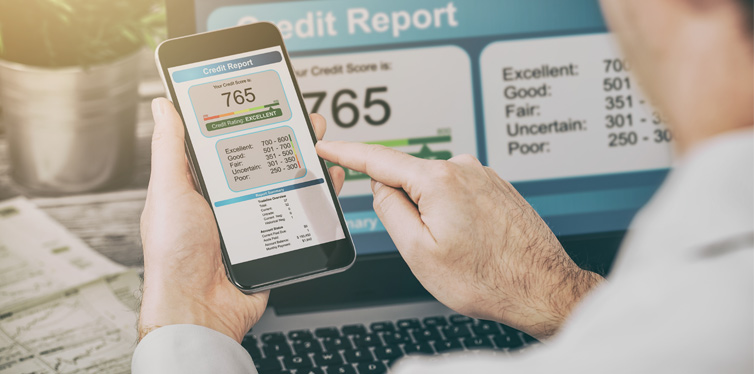How To Increase Your Credit Score
Your credit score is how lenders determine how trustworthy you are. If you have a good history of taking credit and paying it back on time, they will be happy to lend to you. In fact, they will want to lend to you. When you’ve got a good credit score, you’ll get countless emails and letters offering you 0% interest cards and low APR loans. Your credit score can determine where you live, what car you can drive, what jobs you can get, and many more aspects of your life. Here are 10 tips to improve your credit score.

1. Get A Copy Of Your Credit Report
Before you start trying to improve your score, get a copy of your credit report. This should give you some insight into how to improve your credit score. A credit report contains information on repayment history, debt, and credit management, as well as information on any bankruptcy collections or repossessions.
There are three major credit bureaus and you can get annual reports from all three at AnnualCreditReport.com.
2. Dispute Any Credit Report Errors
Now you’ve got your credit report, you can check that all the information is correct. It’s not particularly common for people to have mistakes in their report, but it’s not unheard of either. It’s well worth going through the report with a fine-toothed comb and checking for anything that doesn’t look right.
Sometimes a mistake can be as simple as an address that needs changing, but it could also be a late payment that has been inaccurately reported, which could have a dramatic effect. Thanks to the Fair Credit Reporting Act, you have a right to an accurate credit report and the credit bureau has to investigate any disputes within 30 days.

3. Pay Off Debt
This one should be obvious. Carrying a lot of debt with you will cause a drop in your credit score. Lenders don’t want to give money to someone who already owes a lot because it means they will be less likely to get it back. The debt you’re carrying as a proportion of your overall credit counts for 30% of your credit score, so paying off debt can cause a significant improvement in your score.
4. Use Apps And Tools
You don’t have to navigate the maze of improving your credit score alone. There are hundreds of apps and tools out there that can help. Just type it into Google and see what comes up. One of our favorite tools is Experian Boost. If you’ve been paying your cell and utility bills on time, this free product tracks these payments and adds them to your Experian Credit File, so you can get a real-time score.

5. Keep Balances Low On Credit Cards
Getting a credit card can be good for your credit score (more on that later) but not if you max it out. When calculating a credit score, one thing that is taken into consideration is your credit utilization ratio. This relates to the amount of money you have spent compared to the maximum you could spend. So, if you have credit cards with a total of $10,000 credit per month and spend $2,500 a month, your credit utilization ratio is 25%. Keep this below 30% if you want to maintain a good score.
6. Always Pay The Credit Back On Time
This is one of the golden rules of having a good credit score. You must pay any credit payments on time. Whether it’s an auto-loan, store-finance, mortgage, or credit card, late payments will cause your credit score to plummet.

7. Get Some Credit If You Do Not Have Any
If you’ve never had credit before, it’s worth getting some. Lenders want to see a history of borrowing money and paying it back. Otherwise, they have nothing to base their lending decision off. To start, get a beginner credit card or buy something from a store on finance. Just make sure you can afford the repayments.
8. Keep Old Credit Cards Open
As long as it’s not costing you any money, keeping old credit cards open can be good for your credit score. This goes back to your credit utilization ratio – if you close one, you could increase your credit utilization ratio and therefore your credit score.

9. Don’t Apply For Too Much New Credit
Applying for a credit score creates what’s called a ‘hard inquiry’ on your credit score. These remain on your credit score for two years and can negatively affect it, especially if the application is unsuccessful. The best bet is to only apply for credit that you are likely to receive.
10. Be Patient
Improving your credit score isn’t something that’s going to happen overnight. It can take months and years to make a significant impact, but it’s worth doing. Create a long-term plan to improve your score and stick to it until you’ve achieved the credit score you want.










